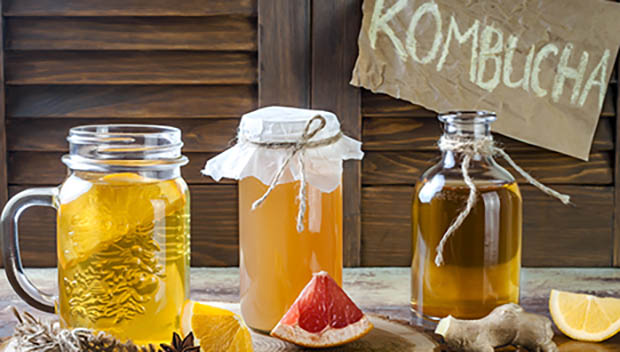
Diet choices have always fluctuated throughout time based on season, availability, price, advances in technology like cookware and refrigeration, health information, social aspects and even lifestyle (work hours, gender roles, etc.). These factors influence how we eat at any given time and lead to developing food trends. Trends are temporary—but not necessarily short term—styles influenced by our current culture and our food and diet is not immune to these changes.
We're diving into five food trends currently affecting the fitness world and taking a look at whether they're worth your attention.
Intuitive Eating
This is a non-diet eating style that rejects traditional diet culture of restriction and replaces it with being more mindful and aware of your body's wants and needs. While the idea of giving your body what it wants based on internal cues seems pretty novel, it might not be for every athlete.
The more serious you are about meeting your athletic potential, the less likely intuitive eating will benefit you. Athletes need to pay attention to specific nutrient markers to best fuel performances and promote recovery, which can be missed by simply doing what your body wants in the moment. Athletic training can also skew normal internal cues, like hunger, that intuitive eating relies on, which might lead to eating far less or more than you really need. The bottom line is to be mindful yet pay attention to the numbers, not just your feelings when it comes to your fitness diet.
Healthy Delivery
Ditching traditional greasy take-out to focus on your health no longer means slaving in the kitchen for hours on end. This year has brought a wave of health-inspired meal delivery options to keep you fit, nourished and on-the-go. Skip the store by taking a quick trip online to select groceries to be delivered to your door. Sign up for a subscription like Daily Harvest or The Feed that will keep your kitchen stocked with options to fuel your workouts, or allow you to prepare with limited time and effort for healthful meals in a hurry. Athletes take advantage of modern technology in many ways to improve performance, and this should be no exception. Because of this, you can spend more time focused on your training without sacrificing nutrition.
Beverages
Cold brews enhanced with shrooms, probiotic kombuchas, golden lattes and endless varieties of water (collagen infused, pH balanced, etc.)—there is no shortage of trendy beverages on the market right now. While these drinks are colorful, tasty and fun to try, they likely do nothing more than drain your wallet. There is no research to support that the amount of functional "health supporting" ingredients found in these drinks does anything for the body. Many of these drinks are actually pretty high in sugar, chemicals or calories. So if you enjoy trying the latest beverage, aim to make it an occasional indulgence and sip strategically. For example, if an enhanced water helps you hydrate more, awesome! If a high-cal turmeric smoothie helps you meet your energy needs, drink up! But don't go overboard.
Crickets
Wait...what?! That's right. These crunchy insects are making their way into fitness fuel as they happen to be a sustainable way to get your protein. Just 100 grams of cricket contains about 13 grams of protein. To put that in perspective, 100 grams of cow's milk provides just 3.5 grams of protein. Use cricket flour to give your baked goods a protein boost, or grab a cricket protein bar for a post-workout recovery option. The thought of fueling with crickets might creep you out initially, but these products won't taste like bugs and will actually give your diet a protein boost without increasing your carbon footprint.
CBD
The latest trend sweeping the fitness world is Cannabidiol (commonly referred to as CBD) and is currently being infused into everything from water to ice cream. CBD is an active ingredient of the marijuana plant that is non-intoxicating, legal for athlete drug testing protocol and is being linked to an extensive list of health benefits. Despite the research being pretty limited on dosing and how it affects athletes, there seems to be potential for the substance to reduce anxiety, improve sleep and reduce pain, all major issues that prevent athletes from recovering and reaching optimal performance. While the science is still up in the air, CBD might be a safe and effective way to promote your recovery. The only way to know is to try it out and decide if it works for you.
READ THIS NEXT: This Year's Hottest Sports Nutrition Trends


